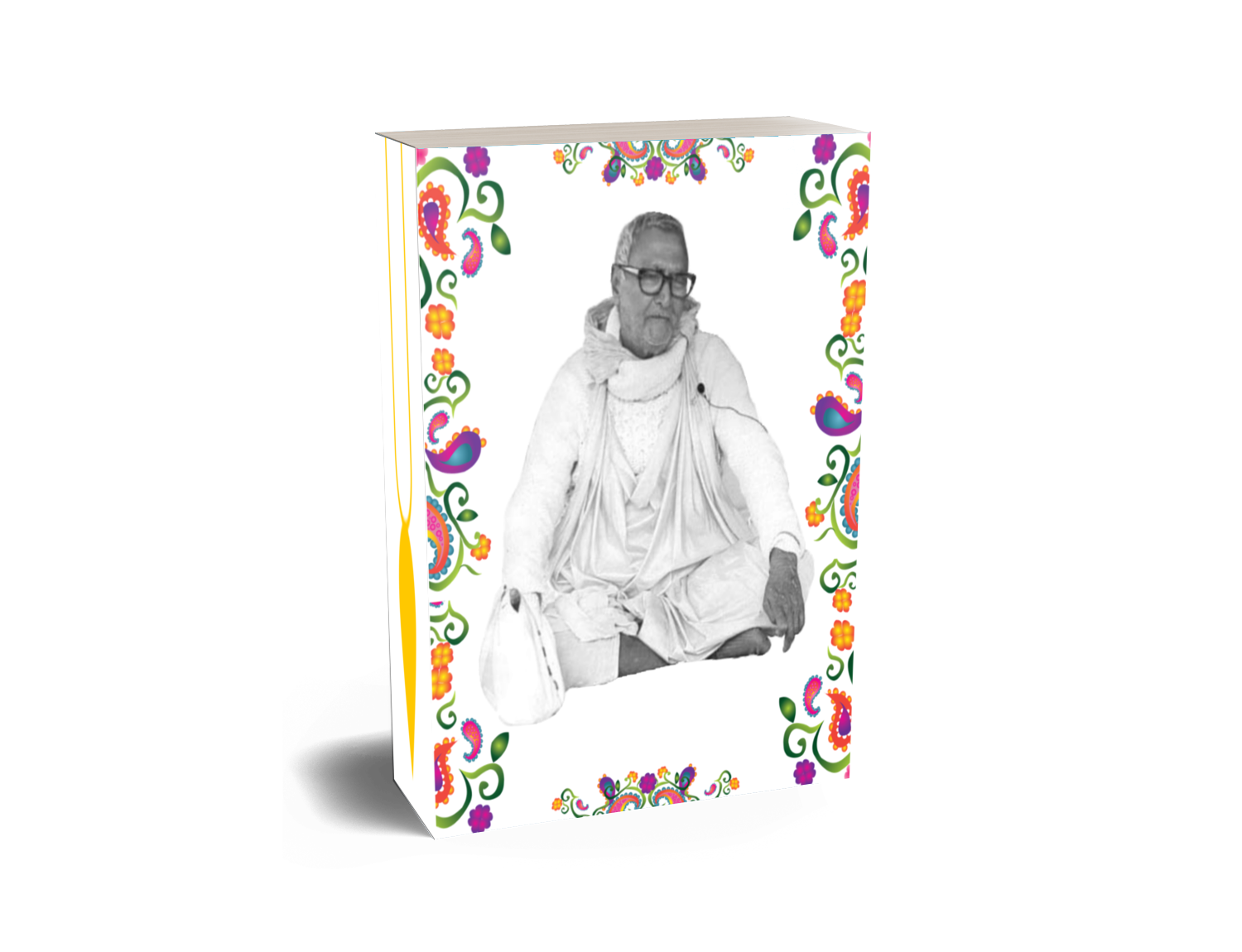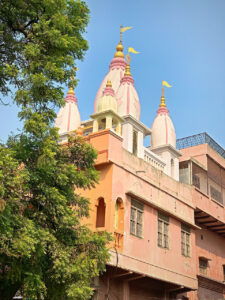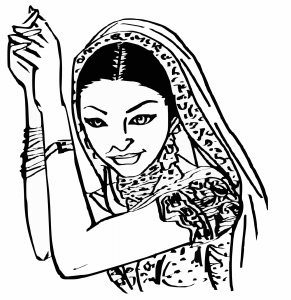[ad_1]


Excerpt from Encounters With Divinity by Śrīla Bhakti Rakṣaka Śrīdhara Mahārāja (www.gosai.com/writings/encounters-with-divinity) and a darśana with Śrīla Bhakti Rakṣaka Śrīdhara Mahārāja in India, Date, Time & Location Unknown (Prema.bplaced.net/guardian/articles/poison)
Pradyumna Prabhu: One question I had for a long time. I inquired, I was talking with Bābājī  Mahārāja, Kṛṣṇadāsa Bābājī Mahārāja and also Vana Mahārāja, they were saying that in the early years of the Gauḍīya Maṭha, they led a very simple life and there was much stress on preaching and everything. Later, as there was money and more facility, there were some problems arising from that.
Mahārāja, Kṛṣṇadāsa Bābājī Mahārāja and also Vana Mahārāja, they were saying that in the early years of the Gauḍīya Maṭha, they led a very simple life and there was much stress on preaching and everything. Later, as there was money and more facility, there were some problems arising from that.
Śrīla Bhakti Rakṣaka Śrīdhara Mahārāja: Of course, this is natural. You see Prabhupāda gave an explanation of the same. We take money from the viṣayī, worldly men, and with the money the poison also comes to be digested. So some trouble will come.
Pradyumna Prabhu: If we take money from people there is poison?
Śrīla Bhakti Rakṣaka Śrīdhara Mahārāja: Of course. That poison will be minimized by the handling of the sādhu. Viṣaya–viṣa (the poison of sense gratification). One who can digest poison accepts money from [the] viṣayī and utilizes it, poison is also medicine. His divine agent can utilize the poison as medicine.
Pradyumna Prabhu: So viṣaya is poison but it can also be utilized as medicine.
Śrīla Bhakti Rakṣaka Śrīdhara Mahārāja: One who can utilize the poison as nectar in medicine, otherwise it  will kill the person, just like the viṣayī who is trying to enjoy that which is meant for Kṛṣṇa. Energy also comes with poison. Sampatti (wealth) means the energy which carries the mentality of the owner.
will kill the person, just like the viṣayī who is trying to enjoy that which is meant for Kṛṣṇa. Energy also comes with poison. Sampatti (wealth) means the energy which carries the mentality of the owner.
Pradyumna Prabhu: In the same way I came in the beginning when Śrīla Prabhupāda started in America, and now I see some things are here now which were not there then. Some things which are not so good, so I am just comparing, naturally this will come as one gets bigger and bigger, more money comes, more buildings come. And many different people are attracted.
Śrīla Bhakti Rakṣaka Śrīdhara Mahārāja: Enchanted by money one begins to make trade, then their soul becomes dead and the activity of the worldly man begins. By amassing money, the real principle is lost. If the adhikārī is not a genuine one, one may be carried away by money towards the exploiting world— kāminī–kāñcana (woman and money).
Mahāprabhu did not wish to meet Prataparudra because he was a viṣayī.
niṣkiñcanasya bhagavad-bhajanonmukhasya
pāraṁ paraṁ jigamiṣor bhava-sāgarasya
sandarśanaṁ viṣayiṇām atha yoṣitāṁ ca
hā hanta hanta viṣa-bhakṣaṇato ’py asādhu
[Greatly lamenting, the Lord then informed Sārvabhauma Bhaṭṭācārya, “ ‘Alas, for a person who is seriously desiring to cross the material ocean and engage in the transcendental loving service of the Lord without material motives, seeing a materialist engaged in sense gratification or seeing a woman who is similarly interested is more abominable than drinking poison willingly.’ ”]
Śrī Caitanya-caritāmṛta, Madhya-līlā 11.8
Sandarśanaṁ viṣayiṇām atha yoṣitāṁ ca hā hanta hanta viṣa-bhakṣaṇato ’py asādhu—for a sannyāsī it is worse than swallowing poison to meet a king who is the embodiment of monetary wealth. He is in the centre of the management of material prosperity. Yoṣi means that his tendency is towards enjoyment, and Mahāprabhu says that to come in connection with these two is like swallowing poison—so one must be careful.
Those who are in the company of devotees (sādhu-saṅga) and are following the instructions of a higher sādhu are rightly situated—that is all that is needed.
Once Vana Mahārāja, during the month of August, went to collect donations for Kṛṣṇa Janmāṣṭamī. For one month the festival was observed in Calcutta. At that time all the preachers were brought back to Calcutta and they would go from door to door for collecting bhikṣā (alms). Vana Mahārāja was in a party with one or two brahmacārīs, and went to a part of Calcutta for collection. Generally one member of the party would approach any gentleman and request that, “We have come from Gauḍīya Maṭha. Dear sir, please help, we want to make some collection, you are the devoted persons of this locality.”
Vana Mahārāja asked some gentlemen, “Please give me the address of a few good benevolent gentlemen to whom we can approach and get some money for our purpose.” That gentleman replied, “Just go to that house—there you will find someone.” But that was the house of a prostitute. Vana Mahārāja went in good faith and knocked on the door. The  door opened, and a lady came, “Oh you are sādhu, what do you want from me?” That gentleman who asked Mahārāja to go to that house was laughing there with his friends. Vana Mahārāja gave the lady an invitation and said, “We are having a festival, and would like some contribution from you.” Whether the lady gave something or not I don’t know.
door opened, and a lady came, “Oh you are sādhu, what do you want from me?” That gentleman who asked Mahārāja to go to that house was laughing there with his friends. Vana Mahārāja gave the lady an invitation and said, “We are having a festival, and would like some contribution from you.” Whether the lady gave something or not I don’t know.
Vana Mahārāja returned, and these people were laughing at him very much. Vana Mahārāja came back to the maṭha and said to Prabhupāda, “I won’t go for any more collection.”
“Why?”
“These rogues guided me to a prostitute’s house. I won’t go anymore for collecting.”
Then Prabhupāda delivered a lecture. “There are many of you who have left their own property, but still I send you out for collection. Do you think that I am wrong to do so? No. The viṣayī always wants to entrap us in their snare. Everything should be utilized—we must learn to utilize everything and anything for the service of Kṛṣṇa—then only are we saved. Otherwise if we leave it, then when it has a chance, it will come back to bite us.”
“So we must use whatever comes to us, everything—we should deal with it in such a way. Anywhere I shall come across anything that will give some impression about or remembrance of Kṛṣṇa, I must utilize it in His service. If we leave it, it will become our enemy. But we should make them our friends. This will help us in the service of Kṛṣṇa. We must make such adjustments in this world, and leave nothing aside.
anāsaktasya viṣayān
yathārham upayuñjataḥ
nirbandhaḥ kṛṣṇa-sambandhe
yuktaṁ vairāgyam ucyate
prāpañcikatayā buddhyā
hari-sambandhi-vastunaḥ
mumukṣubhiḥ parityāgo
vairāgyaṁ phalgu kathyate
[“When one is not attached to anything, but at the same time accepts everything in relation to Kṛṣṇa, one is rightly situated above possessiveness. On the other hand, one who rejects everything without knowledge of its relationship to Kṛṣṇa is not as complete in his renunciation.” (Bhakti-rasāmṛta-sindhu 1.2.255–256)]
Parityājya vairāgyam—to leave everything that is non-Kṛṣṇa—that is bogus and artificial renunciation. Rather, it is proper renunciation to see everything in the service of Kṛṣṇa—nirbandhaḥ kṛṣṇa-sambandhe.
Image/Art made possible by Pixabay.com, Krishnapath.org and/or Bhaktiart.net
Unless indicated differently, all verse translations and quotes are from the books
by Śrīla Bhaktivedānta Svāmī Prabhupāda (Vedabase.com)

[ad_2]







